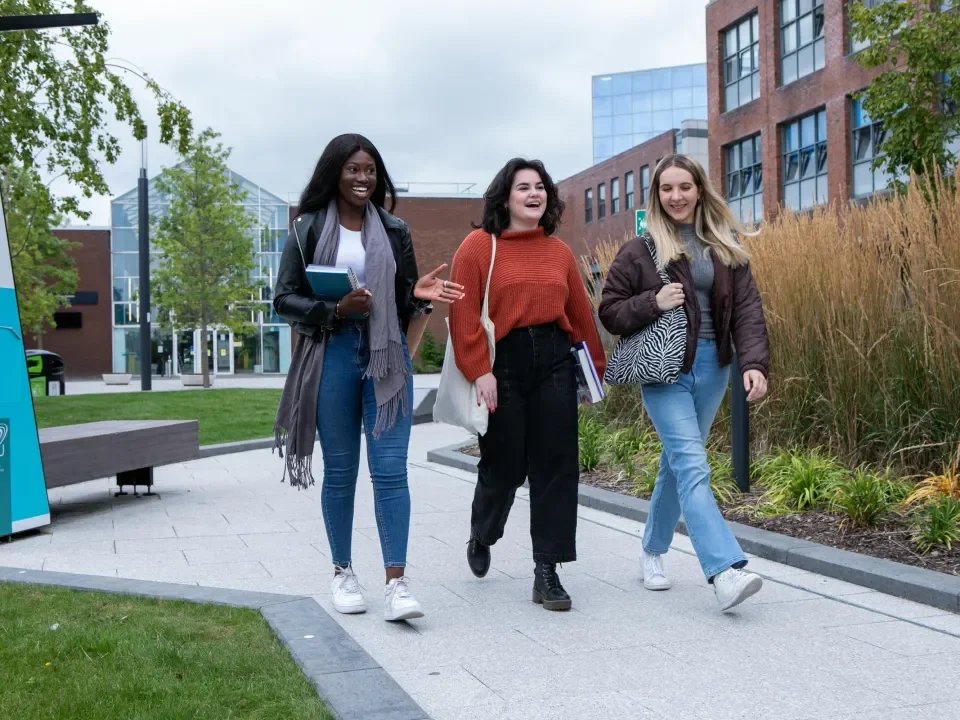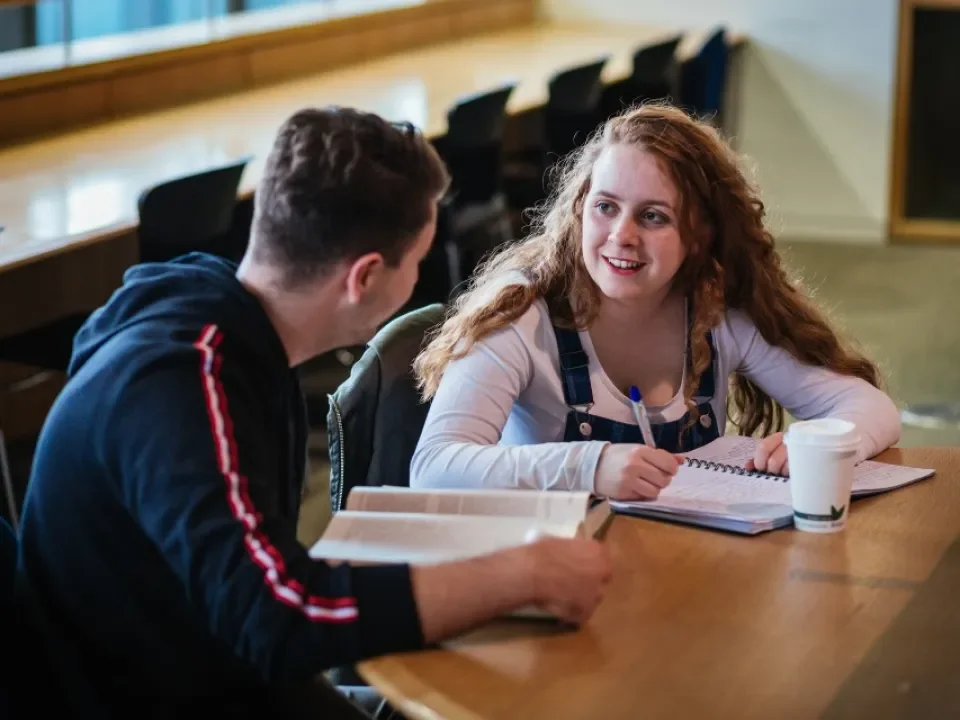Overview
Do you have an interest in major world issues? Would you like to know more about how politics, economics and security work in today¡¯s societies? If you are keen to learn, to analyse and to understand current affairs across the world, then you will enjoy the challenge of DCU¡¯s BA in International Relations. This degree equips you with a real understanding of global issues so you can make a meaningful impact on real world challenges.
Learn about global issues
During this degree, you will learn about issues such as conflict, peace and security, intelligence, terrorism, globalisation, third-world debt and climate change. By the end of this unique and innovative course, you will have learned about international politics, development and regional studies from a global perspective to equip you for careers working with international organisations, institutions and NGOs.
The skills you¡¯ll learn
You will also gain the skills employers are looking for such as oral and written communication skills, teamwork skills, research techniques, and ability in analytical and critical thinking.
Learn from the best
DCU is a leading centre for expertise in International Relations, with lecturers involved in work on global issues such as security, peace studies and climate change.
Three of four year degree
You can complete this degree in three years, or choose to take an extra year either to study abroad or complete an INTRA placement.
Why DCU
DCU People
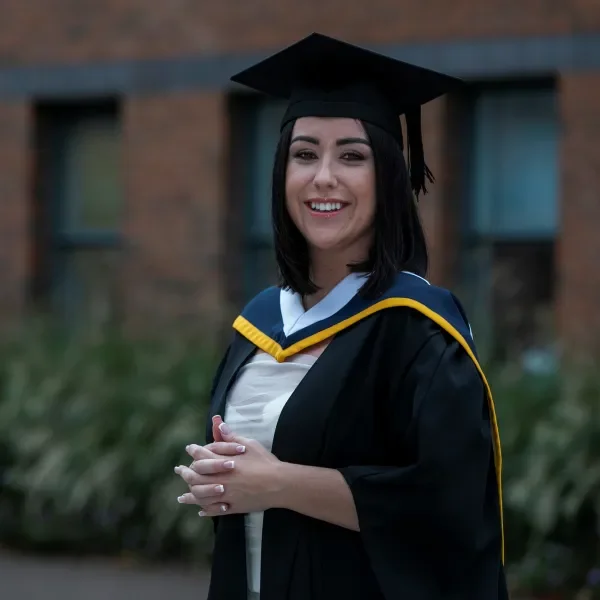
¡°I genuinely love DCU, I had the best experience and I would recommend it to everyone,¡± said Emma Murphy as she prepared for her graduation with a BA in International Relations.
Read more about Emma Murphy
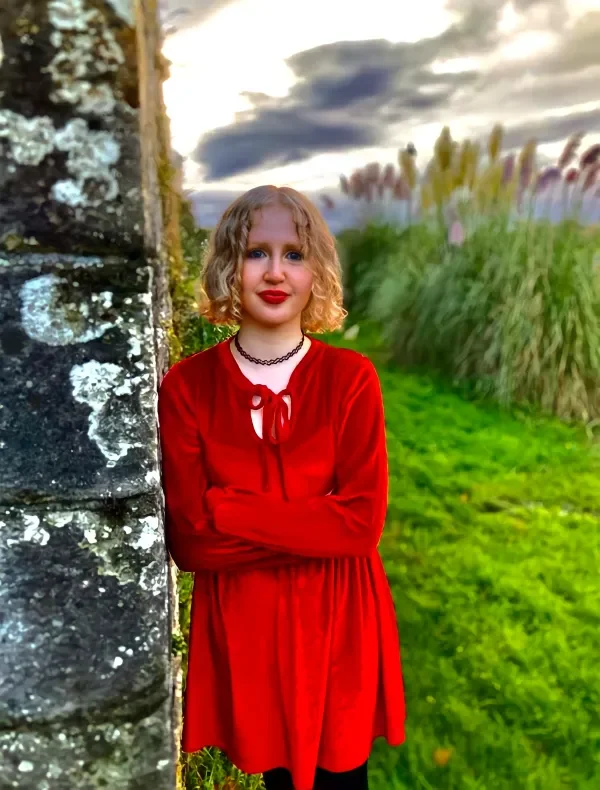
¡°Looking back on my time at DCU, I believe that my overall experience could be encapsulated as positive, demanding, and at times stressful, but it was also truly fascinating and rewarding.¡±
Read more about Aisling Rose McDonald
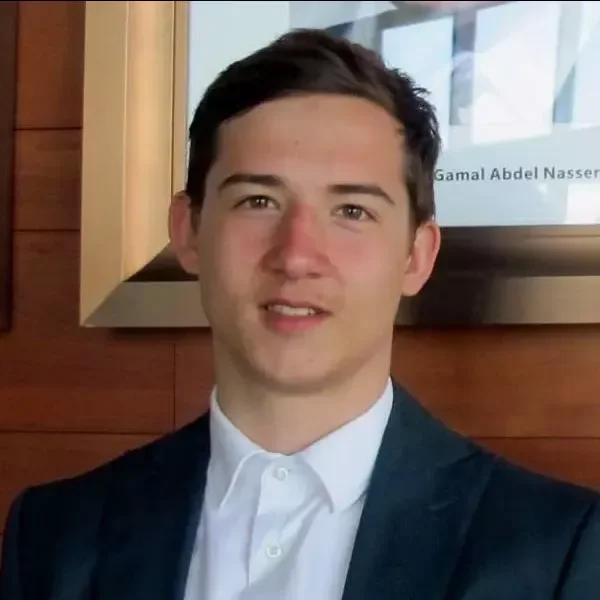
"Do not be scared to have your own opinions or to acknowledge the strength of an argument that you might not agree with."
Tell us why you chose this undergraduate degree
Read more about Sean McDonagh Abbas

"In my module selections throughout my degree, I found I often gravitated towards the EU and European policy aspects."
Read more about Carla Donohoe
Careers & Further Options
Careers
International Relations is a diverse field that is extremely relevant in the increasingly globalised world we live in.
Graduates from our BA in International Relations will be ideally suited to a number of roles especially when combined with experience abroad and foreign language skills.
With deep insight into global politics, cultures and the ability to identify and analyse global issues, graduates of International Relations are well placed to pursue careers with governmental and non-governmental organisations, both national and international, like the United Nations and European Union, diplomatic services, as well as with major international corporations.
For instance, after this degree you may want to promote human rights, work in counterterrorism or help develop policy on environmental issues.
- International civil service
- Diplomatic services
- International aid
- Policy evaluation and research
- International commerce
- Journalism
- Politics
- Armed forces
- Public Affairs
- Public Policy
- Education
- NGO sector
DCU graduates are highly sought after by employers. Our Graduates work in environments ranging from large multinationals to SMEs, family businesses and start-ups across every sector.
DCU Careers Service has a number of learning and development initiatives in place for our students, giving them the skills they need for a successful career path.
Entry Requirements
There are no additional entry requirements for this programme apart from the general entry requirements for admission to the university.
Once admitted to the programme, students choose, at the point of registration, whether to study a language and register for 10 credits in their chosen language. They must continue with this language throughout years two and three of the programme.
If students wishes to choose the language stream, they must meet the following language requirements
Minimum of H4 in French if they wish to register for Intermediate French
Minimum of H4 in German if they wish to register for Intermediate German
Minimum of H4 in Spanish if they wish to register for Intermediate Spanish
There are no additional entry requirements for this programme apart from the general entry requirements for admission to the university.
Once admitted to the programme, students choose, at the point of registration, whether to study a language and register for 10 credits in their chosen language. They must continue with this language throughout years two and three of the programme.
If students wishes to choose the language stream, they must meet the following language requirements;
Minimum of GCE A Level C in French if they wish to register for Intermediate French
Minimum of GCE A Level C in German if they wish to register for Intermediate German
Minimum of GCE A Level C in Spanish if they wish to register for Intermediate Spanish
Please visit our Admissions webpage for details on course requirements or how to apply to DCU.
Please visit our QQI FET webpage for details on DCU courses, open days, campus tours or school visits.
To apply to DCU, please visit www.cao.ie.
Mature entry is a competitive process. Applicants must demonstrate:
- a genuine interest in the programme(s) they are applying for
- academic experience and competency in their chosen field of study
- an ability to engage and succeed on the programme
All applicants must complete a statement of interest to be considered for the mature application route.
For further guidance on the mature application process please see the CAO Website
Applicants that have completed at least one year of study at NFQ Level 6, 7 or 8 at another institution may apply to continue their studies on a similar programme at DCU. There should be substantial overlap in content between the two programmes to be considered for a transfer. Results and other supporting documentation must be submitted to CAO by the closing date of 1st July. This is a competitive application process for a small quota of advanced entry places. Offers are made on a rolling basis until all places are filled. Early application is advised. Please note: Applicants should also consider applying through the appropriate route for first year entry to the programme they are interested in. This application process is only for advanced entry.
International candidates are expected to have educational qualifications of a standard equivalent to those outlined above. In addition, where such candidates are non-native speakers of the English language they must satisfy the university of their competency in the English language. For further information on international applications click here.
Course Structure
Set yourself apart with the only BA dedicated to International Relations in Ireland and develop a range of multidisciplinary skills in high demand by employers. This degree offers great flexibility which allows you to study core modules and choose optional modules from one of two streams, International Relations or Languages. The stream you choose in your first year, will then run for each of the three years of your degree. DCU¡¯s general entry requirements apply for this degree but if you choose the language stream, you must have a minimum of H4 in French, German or Spanish. Additionally you will apply your research skills to a guided research project in year 2 (core) and in your final year, you may choose to undertake an independent research project (dissertation) which is elective.
Opportunity to study abroad
This is normally a three-year course. However, you may elect to spend an extra year abroad in one of our partner universities in China, the Czech Republic, France, Germany, Hungary, Poland, Scotland, Spain, Sweden, Turkey or the USA. This is an excellent opportunity to enhance educational and social experience at first hand. You then complete the final year of your course at DCU in Year 4.
Or apply for an internship placement
You can opt to apply for a year-long work placement in Year 3 and complete the final year of your degree in Year 4. This will give you a unique opportunity to enhance your CV, increase your employability and experience the relevance of your study in the real world. This option is competitive and subject to the availability of placements. For more information on the INTRA programme at DCU, please visit dcu.ie/intra.
- Introduction to European Integration
- Introduction to International Political Economy
- Introduction to International Relations and Security
- Introduction to Politics
- The Role of International Law in International Relations
- Introduction to Development
- Introduction to Global Governance
- Climate Change and International Politics
- Research Skills and Methods for International Relations
Optional Modules
International Relations Stream:
- Introduction to US History and Politics
- Contemporary Cultural Debates
Language Stream (one language):
- French Language (intermediate)
- German Language (intermediate)
- Spanish Language (intermediate)
- Political Ideologies
- Contemporary Political Terrorism
- Conflict, Security and Peace
- Research Design
- Guided Study Project
- Intelligence, National Security and Foreign Policy
Optional Modules
International Relations Stream:
- Introduction to Gender Studies
- International Peacekeeping and Peacebuilding
- The Making of Contemporary Europe
- Global Cultures
- Irish Foreign Policy
Language Stream (one language):
- French Language (intermediate)
- German Language (intermediate)
- Spanish Language (intermediate)
- Optional study year abroad or INTRA placement
- Digital International Relations
- Key Issues in International Relations
Optional Modules Include:
- Contemporary Politics of the Middle East and North Africa
- Politics and Foreign Policy of China
- Unrecognised States in the International System
- The Politics of Sub-Saharan Africa
- The Politics of South Asia
- Post Soviet Politics
- Issues in European Integration
- National and Populism in the 21st Century
- Issues in American Politics
- Conflict Resolution in Northern Ireland
- Sexualities, Languages and Society
- The Politics of Migration in Europe
- Dissertation
- Uaneen Award: DCU¡¯s Leadership and Engagement Module
Language Stream:
- French Language (intermediate)
- German Language (intermediate)
- Spanish Language (intermediate)
Fees and Funding
Fees
How To Apply
Applicants presenting EU School Leaving/FETAC Level 5 examinations: Apply through the Central Applications Office (CAO) by 1st February or 1st May
To apply for this programme:
Candidates should apply directly here. Here's a quick step by step guide if you need help with your application.
Please provide
- Academic Transcripts for each and every year of study with English translation, if applicable.
- If applicable, provide evidence of competence in the English language as per DCU entry requirements.
Applications are accepted on an ongoing basis up to 1st July. All Non-EU candidates are advised to apply early, as places are limited.
All mature applicants apply through the CAO by 1st February. For further information and for special application procedures for mature students, please click here
Applications are made via the CAO Advanced Entry route which will open on the 5th of November to 1st July.
Please see Application Procedures or E-mail ugadmissions@dcu.ie.
Candidates submitting EU examination results are required to apply through the CAO at www.cao.ie
Candidates submitting non-EU examination results are required to apply directly here
Life On Campus
There are many clubs and societies to choose from and as a student on DCU¡¯s BA in International Relations you may be interested in the Amnesty International Society. It promotes activism and campaigns on a variety of human rights issues.
DCU¡¯s Debate Society aims to encourage the personal development of its members, whether that be in relation to self confidence or simply fine tuning our arguments.
Or you can get started on changing the world straight away by joining Enactus which helps members develop the skills necessary to become the leaders of tomorrow - be it working for a corporate organisation, volunteering for a charity or setting up their social enterprise.
At DCU, our students can expect a unique campus experience. We are known for our excellent teaching and learning facilities, our active clubs and societies, and our great social and sporting facilities. All this makes DCU an exciting place to be.
DCU has three academic campuses; Glasnevin, St. Patrick¡¯s and All Hallows (both in Drumcondra), all close to Dublin City centre.
They can be reached by public transport, Dublin Bus and Bus ?ireann, with our Drumcondra campuses a ten minute walk from Drumcondra Train Station. Glasnevin is a 20 minute walk from St Patrick¡¯s and All Hallows. They are also linked by Dublin Bus.
Each campus has a library (O¡¯Reilly, Cregan and Woodlock Hall), study spaces, restaurants, and on-campus residencies. There are sports facilities on Glasnevin and St. Patrick¡¯s, and there is a dedicated sports campus, St Claire¡¯s, located near Glasnevin on the Ballymun Road.
DCU¡¯s 19,000 students have access to exceptional teaching and learning facilities across our three academic campuses.
These include modern learning theatres, research centres, a new media and TV studio, radio/podcast studios, computer suites and advanced labs in the areas of Languages, Engineering, Physics, Chemistry and Biotechnology, as well as a Sports Performance centre and a training hospital ward. In 2021, we opened our first virtual reality ¡®Leadership Lab¡¯, which is located in our Business School.
We continue to improve and update our facilities. For example, construction of a new world-class STEM facility is underway on the Glasnevin campus. With capacity for an extra 3,000 STEM students, this facility will advance DCU¡¯s international reputation for excellence in science and health, computing and engineering disciplines.
Studying in DCU isn¡¯t just about course work. The university is rich in student life and activities.
There are more than 140 clubs and societies for students in DCU, with ¡®Clubs & Socs¡¯ days taking place on both the Glasnevin and Drumcondra campuses at the start of the academic year. They span everything from rugby to rock climbing, anime to jazz.
For many students, sport is an important part of the DCU experience. DCU¡¯s Sports Complex boasts a 25 metre swimming pool, fitness centre gym, all-weather pitches and squash courts, as well as soccer, GAA and rugby pitches. DCU D¨®chas ?ireann, the university¡¯s GAA club, is the largest third level Gaelic Games club in the country. Meanwhile, DCU Athletics has been Ireland¡¯s highest achieving university club for many years. And DCU has dozens of other clubs to get involved in, from Archery to Weightlifting.
The Glasnevin campus is home to our purpose built, state-of-the-art student centre, The U, which serves the needs of a rapidly growing student body. Here, you will find the Student Leadership and Lifeskills Centre, performing arts and cultural spaces for students and the wider community, and the Entrepreneurship and Innovation Hub. Also located on our Glasnevin campus is The Helix, our renowned performing arts centre.
On our St Patrick¡¯s campus, we have the Java Student Hub, a vibrant, warm and welcoming space where students can meet for coffee, play music, use the projector to watch events, or just relax. The walls of the Java Hub were designed based on the cultural history of St Patrick¡¯s Campus, including the special references to the notable sporting history and history of the arts.
We have a number of academic, professional and social supports for students.
Student Advice & Learning Skills Centre - Offers a wide range of supports and services to students and advice
The Writing Centre - drop-in writing workshops for students through the academic year
Maths Learning Centre - provides maths support for students of all ability levels with maths modules
Student Learning - facilitate the transition from passive to active learning for students at DCU, by teaching study skills, nurturing critical thinking and building student confidence.
Careers work with students to help them on their professional journey into graduate employment.
Our student support team offers a comprehensive support programme, helping students make that all important transition into university life and focusing on building confidence and skills which are key to success at third level.

DCU Glasnevin Campus
FAQs
What is the minimum requirement to study languages on the BA in International Relations?
You need to obtain a minimum of H4 in French, German or Spanish to choose the language stream on the BA in International Relations at DCU.
Why should I choose to study international relations (DC231) in DCU?
Because we are the only BA dedicated to International Relations in Ireland.
The BA in International Relations degree will give you insight into the major world issues that challenge and fascinate us today. You¡¯ll examine the forces that shape contemporary societies, such as globalisation, international law, cybersecurity and migration. You¡¯ll also study key institutions like the European Union and the United Nations. The programme also prepares you for the work force by training you in oral and written communication skills, the capacity to think analytically, teamwork skills, and research techniques.
You should choose us because you will get to learn from staff with expertise in areas such as Terrorism and Counter-terrorism, European Union studies, Middle-Eastern studies, International Security and Conflict Studies, International Law and Aid, and Development Studies. All of our lecturers are recognised as top experts in the field.
Do I have to spend a year abroad if I study international relations?
No, a year abroad is not compulsory. However, you may elect to spend an extra year abroad in one of our partner universities in in China, the Czech Republic, France, Germany, Hungary, Poland, Scotland, Spain, Sweden, Turkey and the USA. This is an excellent opportunity to experience another society at first hand. After you complete the year abroad, you¡¯ll return to DCU for your final year.
Is DCU all one campus?
DCU is a multi campus university - the Glasnevin, St Patrick's and All Hallows campuses. The St Patrick's campus is where the Education courses are taught and some of the subjects from the BA Joint Honours degree. There is a 20-25 minute walk between the campuses but there are buses and bikes available to go between them also.
´ó·¢ÌåÓýÔÚÏß_´ó·¢ÌåÓý-Ͷע|¹ÙÍø here to see maps of all of our campuses
If I'm studying on the St Patrick's campus, can I use the library and sports centre on the Glasnevin campus?
Yes, all facilities such as sports and accommodation are open for all DCU students to avail of.
Are there libraries in DCU and if they have wifi and work stations?
We have a brand new state of the art four floor library on our St. Patrick's Campus which complements the existing library on the Glasnevin campus. There is free wifi, work stations as well as desktop computers.
Does DCU provide accommodation?
DCU does have on-campus accommodation for undergraduate and postgraduate students, and you can find out more and apply via the Accommodation Office webpage.





